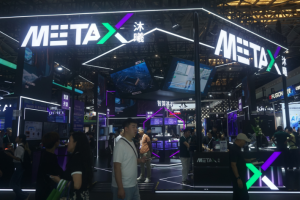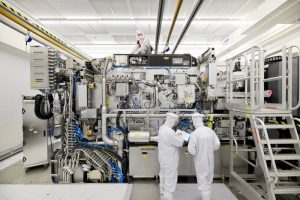The US has admitted that a swathe of tariff hikes on China tech and medical imports, due to be rolled out on Thursday, will now be postponed for at least two weeks.
The US Trade Representative’s office said on Tuesday that some of the steep tariff increases on Chinese imports, including electric vehicles and their batteries, computer chips and medical products, are still being reviewed.
The USTR said in May those tariffs would take effect on August 1 but the office revealed it is still reviewing 1,100 comments received and now expects to issue a final determination later in the month.
President Joe Biden in May opted to keep tariffs put in place by his Republican predecessor Donald Trump while ratcheting up others, including a quadrupling of import duties on Chinese EVs to over 100% and doubling semiconductor duties to 50%.
USTR also sought input on whether a proposed 25% duty on medical masks, gloves and a planned 50% tariff on syringes should be higher.
Also on AF: Samsung Posts 15-Fold Profit Surge on AI Chips Frenzy
Washington is investing hundreds of billions of dollars in clean energy tax subsidies to develop US EV, solar and other new industries, and has said China’s state-driven excess production capacity in these sectors threatens the viability of US companies.
The tariffs are meant to protect American jobs from a feared flood of cheap Chinese imports.
The new measures affect $18 billion of imported Chinese goods including steel and aluminium, semiconductors, electric vehicles, critical minerals, solar cells and cranes, the White House said.
The Port Authority of New York and New Jersey said the tariffs would increase the cost of each crane by $4.5 million “causing a significant strain on the port’s limited resources.”
The largest two categories, making up $13.2 billion of the targeted imports from China in 2023, are lithium-ion batteries, according to US Census Bureau data.
The U.S. imported $427 billion in goods from China in 2023 and exported $148 billion to the world’s No. 2 economy, a trade gap that has persisted for decades and become an ever more sensitive subject in Washington.
- Reuters with additional editing by Sean O’Meara
Read more:
Red Sea Attacks, US Tariffs on China Imports Choke Asian Ports
Chinese Firms Seen Shifting Production Abroad to Avoid US Tariffs
In U-Turn, Elon Musk Says US Tariffs on Chinese EVs ‘Not Good’
US Tariffs Loom on Chinese EVs, And Maybe Solar Panels























